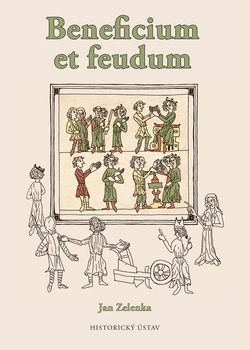Beneficium et feudum. The Form and Transformations of the feudal Institute
 Year of publication:
2016
Year of publication:
2016
 Publisher:
Historický ústav
Publisher:
Historický ústav
 ISBN:
978-80-7286-264-1
ISBN:
978-80-7286-264-1

The book submitted is focused on the issue of the feudal institute. Based on an analysis of the Latin terminology, the metamorphoses of the terminology and its context, it attempts to capture the form and importance of this phenomenon in “everyday practice”, as it is portrayed particularly by the diplomatic sources. The text is comprised of two basic parts. The first section deals with the composition of the image of the feudal institution on the background information of the sources of imperial provenience. It is not possible to treat the imperial sources as whole within this work and so attention is focused on the wider region spread in the area of Harz, which is delimited by five bishoprics – Miessen, Naumburg, Hildesheim, Halberstadt and Merseburg. The basic sources are the diplomatic materials of the mentioned dioceses, which complement the collection of documents of the two most powerful secular ducal families asserting influence in this area in the long term – the Houses of Welph and Ascania. The subject of the analysis is first of all the Latin, or German, terminology and its importance in the range from ca the 10th to the beginning of the 14th centuries. Considering the state of the preserved document production, however, the main attention focuses on the last two centuries of the period mentioned. The analysis concentrates on the terms beneficium and feudum (ius beneficiale/feudale), on the appearance of the terms in the documentary materials, on the composition of the estates, which were labelled in this way, on their owners as well as on the rights and obligations which arose from their bestowal. An analysis of the diplomatic codices complements the identically conceived analysis of the most important narrative sources of Saxon provenience. The second part of the work builds on the recent discussion on the character of the Přemyslid medieval “state”.


